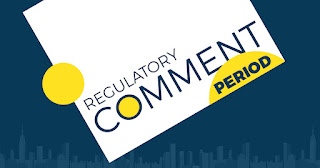In ruling that College Athletes may be entitled to sue for unpaid compensable work and recover minimum wages, plus double damages called liquidated damages, and attorneys' fees, for the prior 2-years (3-years if violations were found to have been willful), the 3rd Circuit Court of Appeals, in Johnson v. NCAA, held "that college athletes may be employees under the FLSA when they (a) perform services for another party, (b) “necessarily and primarily for the [other party’s] benefit,” Tenn. Coal, 321 U.S. at 598, (c) under that party’s control or right of control, id., and (d) in return for “express” or “implied” compensation or “in-kind benefits,” Tony & Susan Alamo Found., 471 U.S. at 301 (quotation omitted)."
This is the biggest decision to impact college sports since the NCAA responded to the SCOTUS decision in NCAA v. Alston by allowing athletes to profit from their name, image, and likeness (NIL) with direct endorsement deals followed by the National Labor Relations Board (NLRB) taking the position that college athletes are employees for purposes of the National Labor Relations Act (NLRA) and forming unions / engaging in concerted activity.
Yet, the biggest takeaway from Johnson v. NCAA isn't the newsworthy headline about college athletes, but instead, its analysis of what types of work must be paid, for everyone.
Simply, the Circuit Court has instructed us that in most instances, "efforts that provide tangible benefits to identifiable institutions deserve compensation." In fact, the Circuit Court dispensed with the NCAA's nonsensical argument that the students were paid in other forms by receiving "increased discipline, a stronger work ethic, improved strategic thinking, time management, leadership, and goal setting skills, and a greater ability to work collaboratively" because those benefits "are all exactly the kinds of skills one would typically acquire in a work environment." In all, the Circuit instructed to always "look to the economic realities of the relationship," "upon the circumstances of the whole activity," when determining if a person is defined as an employee entitled to payment for work. Additionally, it is true that an employee must be promised or expect compensation for their work, but importantly, that compensation is not limited to money and can be instead, the receipt of in-kind benefits, where the promise or expectation can be implied and needn't be expressly stated / written.
Johnson is a big win for unpaid workers everywhere in the US.







